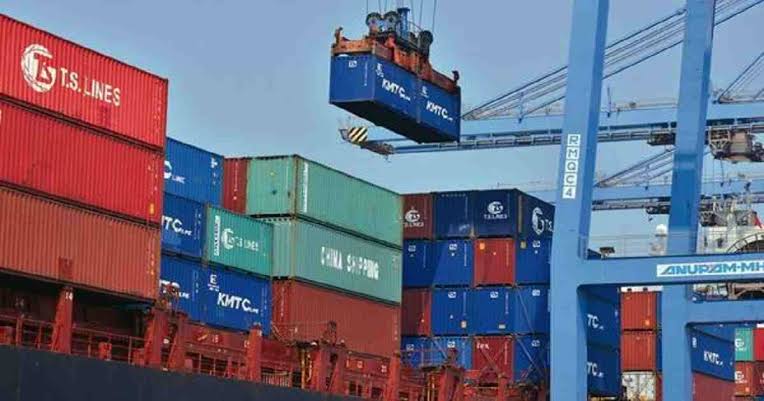Jasim Uddin Haroon
Published:2023-11-19 22:35:56 BdST
Import of industrial inputs remains sluggish in July-Oct
The economy's productive capacity is unlikely to increase in the next few months as latest data showed imports of capital machinery, industrial raw materials and intermediate goods to remain slow.
Latest Bangladesh Bank (BB) data suggests the sluggish trend as the number of letters of credit (LCs) opened by the banks during the July-October period of the current fiscal year (FY 2023-24) was far less than the corresponding period of FY 2022-23.
The total value of LCs opened during the period stood at US$ 21.8 billion, down 11.5 percent from the amount of the first four months of the last FY, according to the BB data released last week.
LCs opened to import capital machinery plunged nearly 21 percent to $731 million during the period under review, showing signs of an adverse impact on the production chain.
Import of industrial raw material imports would also shrink as LCs openings declined by more than 16 percent to nearly $7.3 billion during the July-October period of FY 2023-24.
LCs opening for import of intermediate goods -- a necessity of industrial production -- dropped nearly 21.47 percent to $ 1.52 billion during the period under review.
Dr Ahsan H Mansur, executive director of the Policy Research Institute of Bangladesh (PRI), held the dollar shortage responsible for the downtrend in capital-machinery imports.
"There are also uncertainties in both export and domestic markets. Generally, sales are down," he said, explaining that the productive capacity of the economy would not increase and job creation will remain low until import of the inputs increases.
The country has been suffering from a severe shortage of the greenbacks since the beginning of the Russia-Ukraine war in February 2022 and its foreign reserves dropped to US$19.6 billion as of the middle of this month (November).
To limit the free fall of the reserves, the central bank restricted imports of non-essential items while reducing the sales of dollars to the commercial banks.
This has also forced the banks to refuse opening new LCs. The flip side, however, is that it pushed up the prices of essential commodities fuelling further the inflation which has already nearly double-digit figure.
Supplies of consumer goods like cereals, edible oils and so on took a knock as opening LCs to import this category of products dropped by 39 percent to $1.95 billion in July-October period, according to the BB data.
Another squeeze on economic activity came from the fuel front - imports of petroleum products fell 9.0 percent to $3.3 billion over the corresponding period.
However, opening LCs in the 'others' category showed an increase of 12 percent to $7.0 billion during the period under review.
Bangladesh mainly makes cash import, accounting for around 60 percent of the turnover. Imports on buyer's credit, loans and grants as well as IDB loans also take place.
Economists and manufacturers find two main reasons behind the sharp fall in imports: persisting higher inflation that affected demand for goods on the domestic market and dollar shortage that forced the banks to become unwilling to open LCs.
Dr M Masrur Reaz, chairman of the Policy Exchange of Bangladesh, said: "The dollar-market volatility is the key reason as many banks are not willing to open import LCs."
He said the global commodity market is favourable as the prices there have eased to some extent.
Anwar-Ul Alam Chowdhury Pervez, managing director of Evince Group - a leading textile manufacturer and exporter, also said the main reason is the dollar crisis while the banks are not showing interest in opening LCs.
He said that many exporters were not being able to import industrial raw materials. "Now, persisting higher inflation has affected the purchasing power of consumers which is also another reason behind the sharp fall."
Inflation has continuously outpaced the target, hitting nearly 10 percent in August last, amid quirky price rises on an intractable market that tends to take least care of official interventions.
Unauthorized use or reproduction of The Finance Today content for commercial purposes is strictly prohibited.


